精巧堂ストア
History and culture learned from a multicultural perspective
~ For the Steiner Education Curriculum ~ | AWTC2015 Commemorative Publishing
■ Author: Martin Lawson (Supervised and commentary: Yoko Fuji)
■ Translation: Masumi Uchimura
■ Publisher name: School corporation Steiner Gakuen
【Product introduction】
AWTC (Asia Waldorf Teachers' Meeting) 2013 Subcommittee Minutes The best lecture minutes to answer the difficult question "How can we truly understand other peoples and coexist with humankind?" Specific examples of how to dig up your own culture and other cultures and how to utilize them in the 12-year curriculum. While touching on Steiner's view of history, there are various references to the cultures of Asian countries.
☆ This publication is a volunteer project by volunteers. All proceeds from sales of new and existing books will be donated to the host organization, the Japan Steiner School Association, to cover the costs of the upcoming AWTC 2015.
【Registration information】
Plate type: A5 size (148 x 210 mm), 64 pages
Publication date: February 25, 2015 First edition first print issuance
ISBN: 978-4-904082-27-0
【table of contents】
Introduction
For translation and editing
Day 1 Review of one's own culture and a balanced perspective Sunday, April 28, 2013
What is history? -Narrative with "empathy"
Cultural anthropologist failure
Anthroposophy issues / educational issues
It's time to review the curriculum
Let's review our culture first
Can you speak from a balanced perspective?
Day 2 Human formation through culture April 29, 2013 (Monday)
Body-The first different culture you meet
Baby's amazing ability
Impact of family lifestyle
Natural and physical environment
Local cultural customs
Various questions
Day 3 12-year curriculum-what are the key factors Tuesday, April 30, 2013
Characteristics from the 17th year to the 37th year
Literature / history curriculum and teaching materials according to the stage of growth
Fairy tales-inner transformations appear on the outside
An important element of fairy tales
Fairy Tale Circumstances in Each Country-Reports of Participants
Political intent of the Grimm fairy tale
Prototype motif of fairy tale
Create a fairy tale
Fables-learn morals
Legends and myths-choose a story that suits your culture
When did "history" begin?
History-Comparison with the history of other civilizations and cultures, talk about encounters between different cultures
Day 4 What is the <developmental stage of consciousness>? May 1, 2013 (Wednesday)
Developmental stage of human consciousness
1. 1. Atlantis era consciousness
2. 2. Awareness of the First Cultural Period after Atlantis
3. 3. Awareness of the Second Cultural Period after Atlantis
4. Awareness of the Third Cultural Period after Atlantis
5. Awareness of the Fourth Cultural Period after Atlantis
6. Awareness of the 5th Cultural Period after Atlantis
Questions and Answers on Japanese Cultural Phenomena and the Comfort Women Issue
Main class contents of each grade
Day 5 Acceptance of Language and Culture-Multicultural Learning Thursday, May 2, 2013
Language is a house of thought-classes in dialect until the age of 13
Learning dialects is useful for learning other languages
Multicultural perspective of learning
We are a member of the human race
Ability of children to grow up in a multilingual environment
Humans are interested in each other-cultures coexist
Japanese School Class Examples-Participant Report
Eurythmy also develops
Day 6 Class contents for each grade May 3, 2013 (Friday)
Examples of efforts at Japanese schools and their ripples-reports of participants
Where does "history" begin?
What to learn in European schools
5-6 year discussion theme
Search for archetypes regardless of age
Connecting the archetypes of each era with the developmental stages
6 years of learning is an understanding of archetypes
7 years of learning
7-year discussion theme
8 years discussion theme
Learning Filipino Ethnic Heroes-Participant Report
Sharing culture and contributing to the international community
Day 7 Summary and discussion May 4, 2013 (Sat)
Commentary
About multiculturalism
Steiner's reference to "prehistoric" and "race"
About prehistoric times
About race
List of citations by Rudolf Steiner
Attached table [Comparison table between geological age and Steiner periodization]
History and culture learned from a multicultural perspective
